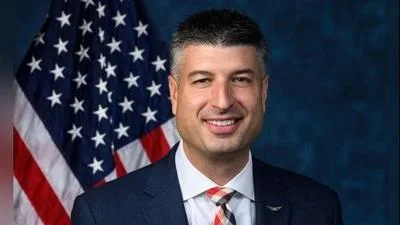Kevin M. Guskiewicz President at Michigan State University | Official website
Kevin M. Guskiewicz President at Michigan State University | Official website
If you listened to the radio, Spotify, Apple Music, or watched a sporting event this summer or fall, you likely heard Kendrick Lamar's hit song "Not Like Us." This track is notable for being the first in Lamar's career to debut at No. 1 on the Billboard Hot 100.
The song has been recognized as one of the best diss tracks of all time and has been featured by USA Basketball after an exhibition win over Canada leading up to the 2024 Paris Olympics. It was also used by the Los Angeles Dodgers during their World Series championship run and several college football teams, including Grambling State University and the University of Tennessee.
Christina L. Myers, an assistant professor at Michigan State University School of Journalism, focuses her research on race and media narratives related to Black experiences in music, sports, and news. She highlights Lamar's cultural influence and significance as he prepares to headline the Super Bowl LIX halftime show on February 9 at Caesars Superdome in New Orleans. Beginning April 19, Lamar will co-headline the Grand National Tour with SZA across stadiums in the U.S. and Canada.
Myers elaborates on why having an artist like Lamar perform at such a significant event matters: "The Super Bowl is the biggest stage that any artist would want to have the opportunity to be on... He is being given a platform not just for us to enjoy but it will be impactful words he shares that will resonate."
Discussing Black artists' significance performing at such events, Myers notes that music from Black artists has inspired every genre: "Spotlighting Black artists at the Super Bowl halftime show is giving them their due respect."
Lamar's music is described as deeply personal and impactful because it speaks about various societal issues: "He speaks about traumas and navigating success... He talks about police brutality... require us to hold up a mirror to who we are as a society."
Lamar is seen as authentic: "Kendrick is more than just an amazing lyricist. He is a culture shifter," says Myers.
His work increases visibility regarding issues faced by Black Americans: "Music is one of the purest forms of ensuring that our stories are being told without editorial interferences," adds Myers.
Regarding his unique style, Myers explains: "I look at Kendrick’s music as a wake-up call... makes you reflect on this idea of what success and failure look like."
Lamar's mastery of diss tracks includes his song “6:16 in LA,” which responds to Drake’s songs while also addressing broader themes like appropriation.
Finally, when asked about her favorite track by Lamar, Myers mentions “How Much a Dollar Cost” from “To Pimp a Butterfly,” highlighting its powerful narrative involving themes of success, greed, and faith.





 Alerts Sign-up
Alerts Sign-up